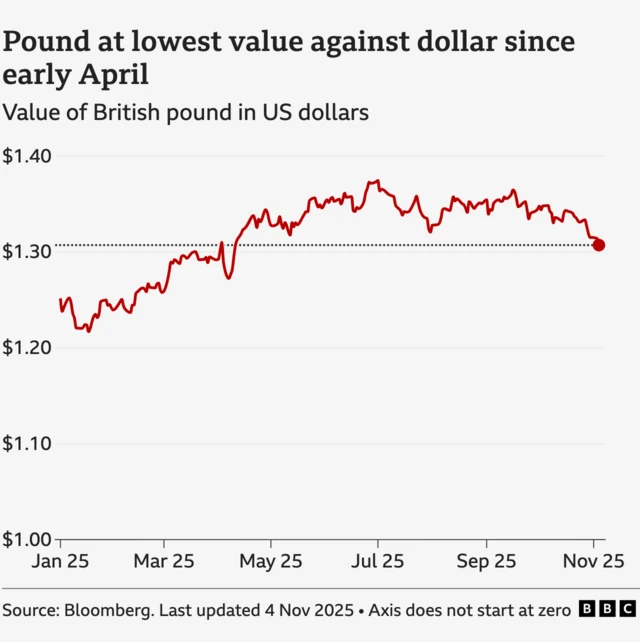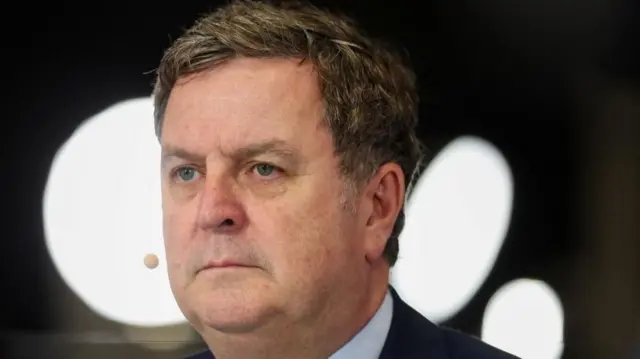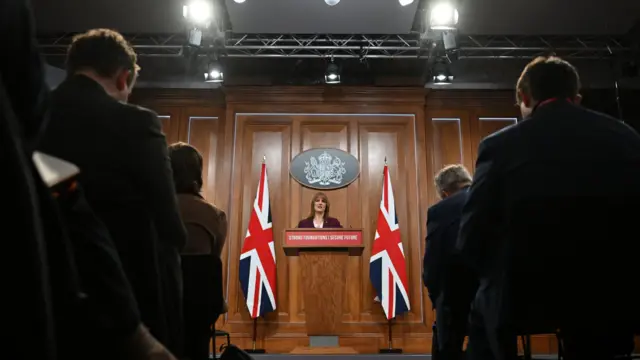Could Reeves break a 50-year taboo by raising income tax?published at 13:43 GMT 4 November
 Chris Mason
Chris Mason
Political editor
It is more than half a century since a chancellor of the exchequer chose to put up the basic rate of income tax - that was Labour's Denis Healey, who delivered his Budget on 15 April 1975.
Not once since have any of his successors done the same thing.
Five decades later, could Rachel Reeves change all of that in three weeks time?
That was one of the big questions hovering over Downing Street as us reporters headed in almost before dawn for the chancellor's breakfast time speech and news conference.
Tradition dictates that three weeks out from a Budget the air is full of every conceivable voice but the chancellor's. But not this time.
Why?
You can pick your expression of choice: softening up, expectation management, pitch-rolling. They all translate as preparing us for unpopular choices to come.
Reeves volunteering to commandeer the broadcasting apparatus of Downing Street – the specially built news conference room in No 9 – tells you everything about the scale of what she is toying with at the end of the month.
Well, I say everything, not quite. The actual choices, the decisions, including which taxes will go up and by how much, will come at the end of the month.
We have now closed our live coverage - thanks for following along















